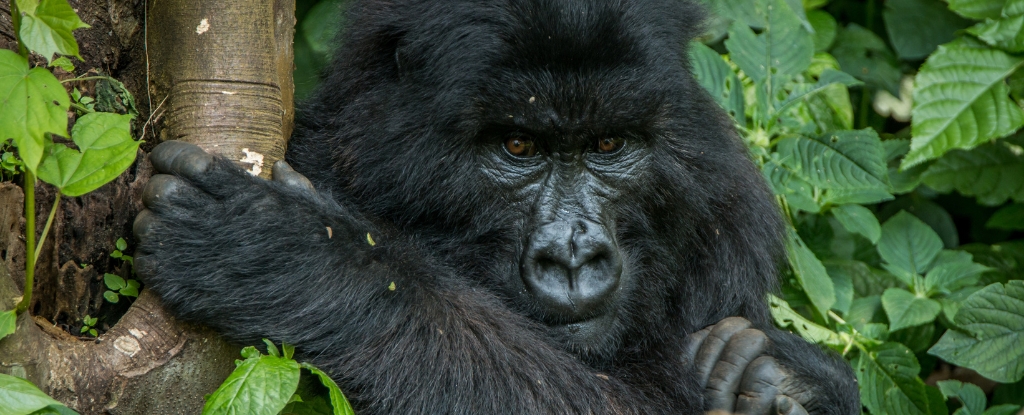Welcome to DU!
The truly grassroots left-of-center political community where regular people, not algorithms, drive the discussions and set the standards.
Join the community:
Create a free account
Support DU (and get rid of ads!):
Become a Star Member
Latest Breaking News
Editorials & Other Articles
General Discussion
The DU Lounge
All Forums
Issue Forums
Culture Forums
Alliance Forums
Region Forums
Support Forums
Help & Search
Science
Related: About this forumJust 1 Mountain Gorilla With Ebola Would Be a Disaster. Here's Why.

We're used to hearing about viruses spreading from wildlife to humans, but infection across species can go in the reverse, too. Just over 1,000 mountain gorillas are left in the world, and any mass mortality event will push this species further to the brink. For this reason, the often lethal Ebola virus – which scientists estimate has already reduced global gorilla numbers by one-third – is a significant concern.
A team of scientists from the US and the Democratic Republic of Congo wanted to know just how deadly an Ebola outbreak like this would be for the mountain gorillas (Gorilla beringei beringei) of Virunga Massif and recently reported their findings. Virunga Massif is one of the most biodiverse places in Africa and home to one of only two mountain gorilla populations in the world. This tropical volcanic mountain range borders Rwanda, Uganda, and the Democratic Republic of Congo. While all three countries protect the mountains' wilderness areas as national parks, those parks also border areas where up to 1,000 people live within a square kilometer – some of continental Africa's highest population densities. "The risk of spillover from humans to gorillas is a significant threat," says lead author and zoologist Dawn Zimmerman from the Smithsonian's National Museum of Natural History.
Ebola outbreaks have already taken a massive toll on the human communities in this region. Between 2018 and 2020, people in the Democratic Republic of Congo experienced the world's second-largest Ebola virus outbreak, with 2,287 human lives lost. This epidemic spread towards Virunga National Park, with human cases just 80 kilometers (50 miles) from its borders. Because of this proximity, conservationists are concerned Ebola will one day 'jump the fence' from human communities to their great ape neighbors. "We have been very lucky that, to date, [the] Ebola virus has not impacted mountain gorillas," co-senior author Kirsten Gilardi, a primate medicine expert from the University of California, Davis, says. "That we were able to produce these findings with data provided from Rwandan, Ugandan, and Congolese wildlife authorities demonstrates their commitment to protecting these magnificent great apes."
To simulate a range of epidemic scenarios, the team used the open-source software Outbreak, a tool designed for wildlife researchers to model the spread of infectious diseases. Conservation scientist and senior author Robert Lacy noted that computer modeling has its limits, especially since wildlife data is scarce. But while these kinds of simulations can never account for all of the variables of real life, Lacy says they can contribute to our understanding of disease risk and inform how we manage populations and interventions. The first experiment looked at how the virus would spread through the Virunga gorillas after an individual gorilla was infected via human contact. We know rates of contact among gorilla groups and lone silverbacks (mature alpha males) are high, so Ebola would spread rapidly through the population. Regardless of where the first gorilla became infected, the model showed that after 100 days since that first case, less than 20 percent of the population would survive. The second experiment modeled what would happen in the same epidemic if some of the gorillas were given a vaccine made for human use. Our genetic similarity to gorillas is a major reason we can spread disease in the first place, but it's also why we can use the same medicines to fight the virus.
https://www.sciencealert.com/just-1-mountain-gorilla-with-ebola-would-be-a-disaster-heres-why
